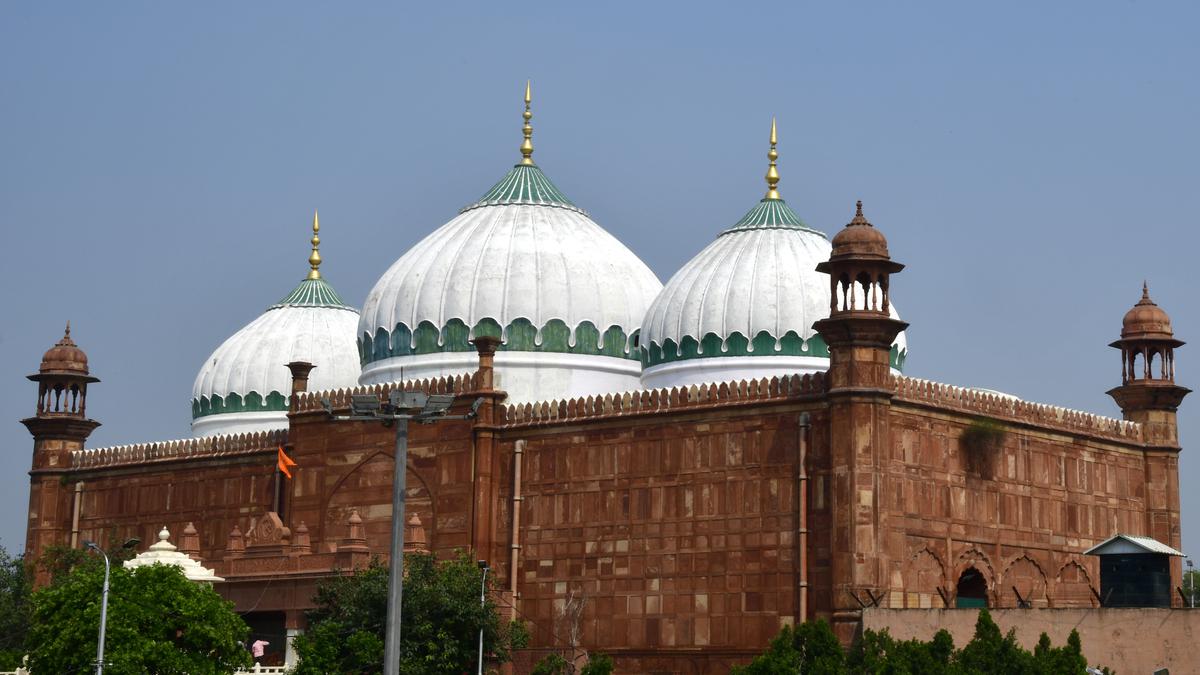
Allahabad High Court allows survey of Mathura mosque
The Hindu
Allahabad High Court allows court-monitored survey of Shahi Idgah premises in Mathura for signs of Hindu temple. Modalities to be discussed on Dec 18.
The Allahabad High Court on Thursday allowed a court-monitored survey of the Shahi Idgah premises adjoining the Krishna Janmabhoomi temple in Mathura.
The court agreed to the appointment of an advocate commissioner to oversee the survey of the mosque, which the petitioners claim holds signs suggesting that it was a Hindu temple once.
The court said the modalities of the survey will be discussed at the next hearing on December 18.
The order on the Krishna Janmabhoomi-Shahi Idgah issue is the second temple-mosque dispute in which the High Court has given its nod to a survey over the past months.
The Archeological Survey of India (ASI) recently completed a survey of the Gyanvapi mosque next to Varanasi’s Kashi Vishwanath temple, but has sought more time from a local court to submit its report.
According to advocate Vishnu Shankar Jain, the application submitted to the High Court said a lotus-shaped pillar characteristic of Hindu temples exists on the mosque premises, and an image of Hindu deity 'Sheshnag' is also present there.
It was also submitted that Hindu religious symbols and engravings are visible at the base of the pillar.

Hampi, the UNESCO-recognised historical site, was the capital of the Vijayanagara empire from 1336 to 1565. Foreign travellers from Persia, Europe and other parts of the world have chronicled the wealth of the place and the unique cultural mores of this kingdom built on the banks of the Tungabhadra river. There are fine descriptions to be found of its temples, farms, markets and trading links, remnants of which one can see in the ruins now. The Literature, architecture of this era continue inspire awe.

Unfurling the zine handed to us at the start of the walk, we use brightly-coloured markers to draw squiggly cables across the page, starting from a sepia-toned vintage photograph of the telegraph office. Iz, who goes by the pronouns they/them, explains, “This building is still standing, though it shut down in 2013,” they say, pointing out that telegraphy, which started in Bengaluru in 1854, was an instrument of colonial power and control. “The British colonised lands via telegraph cables, something known as the All Red Line.”

The festival in Bengaluru is happening at various locations, including ATREE in Jakkur, Bangalore Creative Circus in Yeshwantpur, Courtyard Koota in Kengeri, and Medai the Stage in Koramangala. The festival will also take place in various cities across Karnataka including Tumakuru, Ramanagara, Mandya, Kolar, Chikkaballapura, Hassan, Chitradurga, Davangere, Chamarajanagar and Mysuru.








